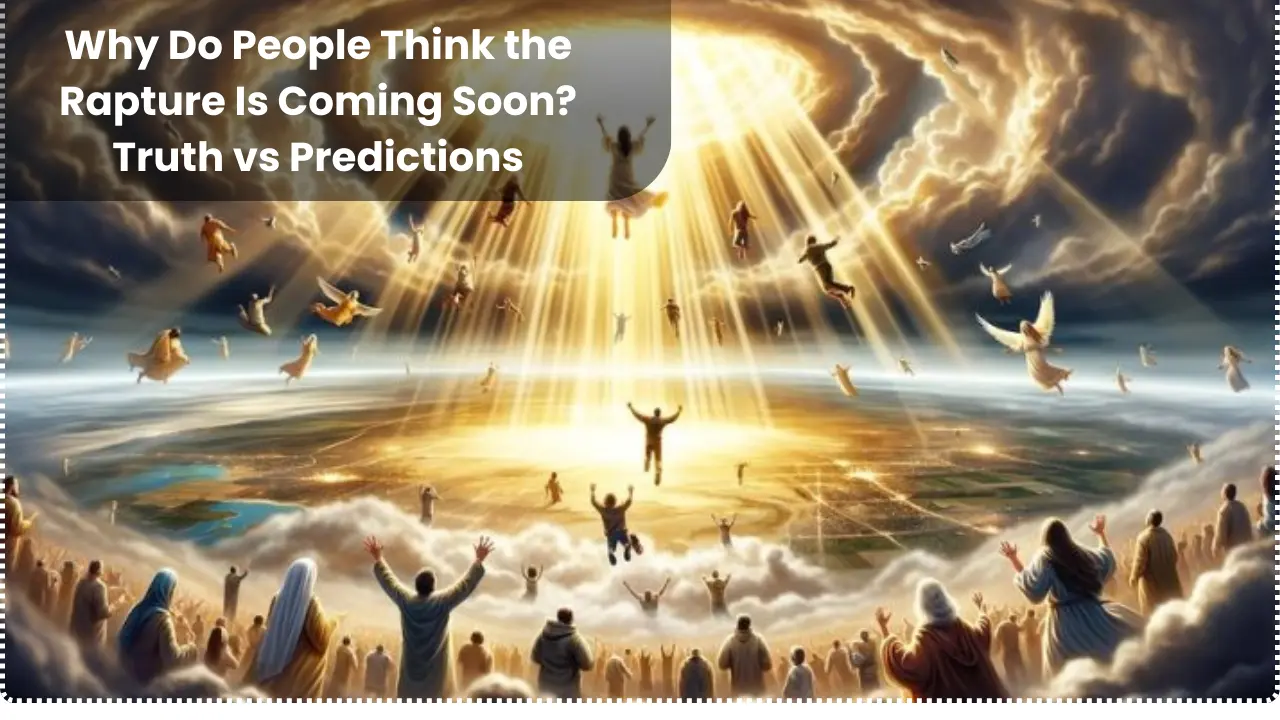Rapture Is Coming Soon?: In recent times, discussions about the rapture have surged, fueled by various interpretations of biblical texts and current global events. Many people are wondering if the end times are truly upon us. This article delves into the reasons behind the belief in an imminent rapture, distinguishing between truth and predictions. We will explore the historical context, biblical interpretations, and the role of modern media in shaping these beliefs.
Historical Context of the Rapture
The concept of the rapture has deep roots in Christian theology, particularly within evangelical and fundamentalist circles. The term itself originates from the Latin word “raptus,” which means “to be caught up.” This idea gained prominence in the 19th century through the teachings of John Nelson Darby, a British evangelist. Darby’s teachings, which emphasized a pre-tribulation rapture, became widely accepted and influenced many modern interpretations.
The rapture is often discussed in the context of end-times prophecy, particularly in the Book of Revelation. This biblical text describes a series of apocalyptic events leading up to the second coming of Christ. Many believers interpret these passages as indicating that Christians will be taken up to heaven before a period of tribulation. This belief has been reinforced through various religious movements and teachings over the centuries.
Biblical Interpretations and Theological Debates

The rapture is a subject of intense theological debate, with different Christian denominations holding varying views. Some believe in a pre-tribulation rapture, where Christians are taken up before the tribulation begins. Others support a mid-tribulation or post-tribulation rapture, where believers are taken up during or after the tribulation. These differing interpretations often stem from varying readings of biblical texts and theological frameworks.
Theological debates surrounding the rapture are complex and multifaceted. Scholars and theologians often engage in detailed analyses of biblical passages, historical contexts, and theological principles. These discussions are crucial for understanding the diverse beliefs within Christianity and the reasons behind the predictions of an imminent rapture. For a deeper understanding, you can explore the Bible Gateway for various interpretations of the Book of Revelation.
The Role of Modern Media and Predictions

Modern media plays a significant role in shaping public perceptions about the rapture. Books, movies, and television shows often depict apocalyptic scenarios, reinforcing the idea of an imminent end times. These media portrayals can influence believers and non-believers alike, contributing to a sense of urgency and anticipation. For instance, the popular “Left Behind” series has had a profound impact on many people’s views on the rapture.
Predictions about the rapture have been made throughout history, often tied to specific dates or events. These predictions can gain traction through social media and online forums, spreading rapidly and influencing a wide audience. However, it is essential to approach these predictions with a critical eye, recognizing the difference between biblical teachings and speculative interpretations. For more insights, you can visit the Christian Post for articles on recent rapture predictions.
Distinguishing Truth from Predictions
Distinguishing between truth and predictions is crucial when discussing the rapture. Biblical teachings provide a foundation for understanding end-times prophecy, but they do not offer specific dates or timelines. Predictions, on the other hand, are often based on interpretations of current events and personal beliefs. It is important to rely on scholarly research and theological expertise when evaluating these predictions.
The rapture is a complex and deeply personal belief for many Christians. While predictions can be intriguing and thought-provoking, they should not overshadow the core teachings of the faith. Engaging in thoughtful discussions and seeking reliable sources can help individuals navigate the nuances of this belief and make informed decisions about their faith.
Disclaimer:
The information provided in this article is for educational and informational purposes only. It is not intended to replace professional theological advice or guidance. The views expressed are those of the author and do not necessarily reflect the opinions of any religious or academic institution. Readers are encouraged to conduct their own research and consult with religious leaders or scholars for a deeper understanding of the rapture and related beliefs.
Also Read:
H1B Visa News Shocks Applicants – Massive Changes Announced by White House Today
LA Dodgers Stun Fans With Epic Win – Playoff Hopes Alive Again










